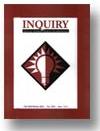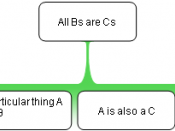Logical Fallacies Page � PAGE �4�
Logical Fallacies
Roger Scott
University of Phoenix
Course: MGT/350
Instructor: David H. Cavazos
May 5, 2006
Logical Fallacies
A logical fallacy-or fallacy, for short-is an argument that contains a mistake in reasoning. (Bassham, 2000). There are many logical fallacies that can fall in to one of two categories: Fallacy of Relevance or Fallacy of insufficient evidence. A fallacy of relevance occurs when reasoning is logically irrelevant to a conclusion. A fallacy of insufficient evidence fails to provide sufficient evidence to support the conclusion though its premise can be logically relevant. The ability to identify logical fallacies in the arguments of others, and to avoid them in one's own arguments, is both valuable and increasingly rare (Holt, 2005). Three fallacies that fall into either one of the above categories, there definitions and significance with respect to critical thinking are discussed below.
Appeal to ignorance is a fallacy that implies an argument must be true on the basis that the argument has not been proven false or that the argument must be false because it has not been proven true.
Appeal to ignorance is a fallacy of insufficient evidence. For example, this fallacy has been committed if claims that the Loch Ness monster does not exist because its existence has not been substantially proven. Conversely, the fallacy is also committed if one argues that the Loch Ness monster does exist because its non-existence has not been proven. This type of fallacy strays from critical thinking in the sense that standards such as precision and accuracy are dismissed. Precision is the ability to have precise answers to precise questions. The above examples cannot grant a precise answer. Accuracy can also not be guaranteed in the examples, as there is no direct proof supporting either one. Without employing...


